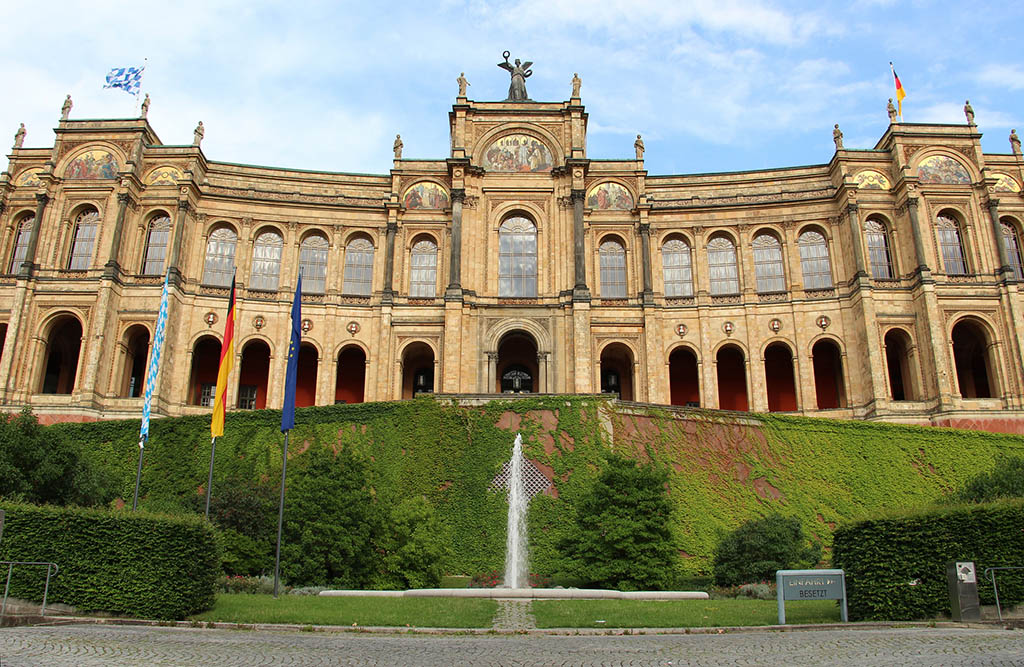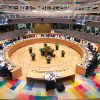
There was a time when it was hoped that 2018 would be the year in which the EU, the project, would get back on track. The economic crisis had been surmounted, albeit with aftereffects. In France, Emmanuel Macron was elected President in May 2017 on a platform of relaunching Europe, and together with Angela Merkel could have driven a new phase of European construction. But the German general election in September 2017 did not yield the result the Chancellor had been hoping for. Both leaders have suffered harmful corrosion to their image and authority, essentially for domestic reasons, with consequences for the fortunes of Europe. France is faltering, Germany is faltering and they are not alone.
Sunday’s loss in Bavaria of what seemed like the perennial absolute majority of the Christian Social Union (CSU), partners of Merkel’s CDU, has triggered a political earthquake, both in Munich and in Berlin, and not only in these two parties. The Social Democrats (SPD) also suffered a disastrous result. The great beneficiaries were the Greens and the right-wing, xenophobic and anti-European Alternative for Germany (AfD), who became the second- and fourth-largest parties in Bavaria.
If Merkel’s authority was already weakened –in part for welcoming refugees from the Syrian civil war in 2015– in recent weeks it has been holed below the waterline. The CSU-CDU’s Bundestag members have been in rebellion, electing as the leader of the parliamentary group an obscure representative, Ralph Brinkhaus, by 125 votes to 112, rather than Volker Kauder, a close ally of the Chancellor and a convinced European. There is also less of a pro-European attitude at the Finance Ministry, after the departure of Wolfgang Schaüble, a committed pro-European, to preside over the Bundestag, and his replacement by the more technocratic Social Democrat Olaf Scholz. And underlying all this there is a latent dissatisfaction among their own members and grass roots with the Grand Coalition government, which none of the parties wanted, and was formed only to prevent new elections after Merkel’s failure –she had been weakened at the polls– to build an administration with Greens and liberals. The Bavarian results have strengthened the hand of the Social Democrats who wanted to withdraw from the Grand Coalition and pass over to the opposition.
The departure of a spent Merkel from the chancellorship now seems to be only a matter of time, after a 13-year stint, which is quite something. Meanwhile, Europe has stalled. It is true that it has made progress on defence, with a Permanent Structured Cooperation and the funds to pay for it, and certain elements of an immigration policy have been implemented, but it is all a far cry from the promise of a year ago, when there were prospects of a strong Merkel-Macron partnership, which at one point even produced a roadmap for the future. The European Commission and its President, Jean-Claude Juncker, also seem a prematurely spent force, as he showed in his recent State of the Union speech, although the EU machinery continues operating behind the scenes.
For his part, Macron has lost popularity among the French. Important Ministers have resigned and he is having serious problems pushing through some of the domestic reforms on which his European credibility is based. There is the risk that, as far as France is concerned, the European elections will be turned into a referendum on his government. If this is a Europe that does not work without the Franco-German axis, the latter is no longer sufficient. In this respect, Macron has realised that if he wants his European project to prosper he needs not only Germany but also Spain and countries that formerly seemed to be more on periphery of France’s, like Finland and Denmark.
What is happening is part of the political and social break-down of European societies and the erosion of the political centre and the consensus that has characterised Europe for decades. A political destabilisation is taking place that is having a major impact on the European process, and not only in France and Germany. Italy is the worst example.
All this is occurring when in just a matter of months –in May 2019– crucial elections to the European Parliament are to be held in which the far-right anti-European parties –or with a different vision of Europe– may make significant inroads and become the future of the EU, possibly as a veto-wielding minority. For the time being these movements are using 2018 to grow and consolidate on the domestic stage and to take on a European dimension.
Brexit is taking up a good deal of energy and European Council meetings. Settling it would help. But even if a new pro-European push is attempted at forthcoming summits –particularly at the informal meeting on 9 May in Sibiu (Romania), on the eve of the European elections– another year has been lost. In September 2017 a list of subjects to be tackled was agreed in Tallinn (Estonia) and this gave rise to a Leaders’ Agenda for what remains of the legislative term, and a Strategic Agenda for the five succeeding years. In December there will be another opportunity, but the weakness of these leaders is unlikely to help. The year 2019, with the European elections and the advent of a new Commission, will be short. The years ahead, in this context and against such a scenario, do not bode well. But still, we must keep trying.


